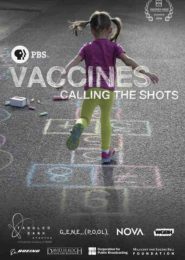The Origins of AIDS (2004)
In the documentary The Origins of AIDS, directors Peter Chappell and Catherine Peix Eyrolle explore a provocative hypothesis: Could HIV have been caused by mass vaccination against polio in the Congo between 1957 and 1960? Released in 2004, this thought-provoking film challenges prevailing narratives about the origins of the AIDS epidemic.
The Polio Vaccination Connection
The film delves into the historical context. During the late 1950s and early 1960s, the Congo underwent a massive polio vaccination campaign. The documentary suggests that contaminated vaccines may have inadvertently introduced the human immunodeficiency virus (HIV) into the population. Scientists, including Cecil Fox, Simon Wain-Hobson, and Joseph Vandepitte, discuss this controversial theory.
The Silent Spread
As the film unfolds, we learn about the silent spread of HIV. The virus infiltrated communities, affecting generations. The documentary raises questions: Could the very vaccines meant to protect people have inadvertently triggered a global health crisis? The hypothesis challenges our assumptions about the virus’s origins.
The Human Cost
The Origins of AIDS doesn’t shy away from the human cost. We hear personal stories—of lives lost, families shattered, and communities devastated. The film underscores the urgency of understanding the past to prevent future pandemics.
The Search for Truth
Through interviews, archival footage, and scientific analysis, the documentary invites viewers to consider alternative narratives. It urges us to explore the complexities of medical history, ethics, and global health. The film doesn’t provide definitive answers but encourages critical thinking.
A Call to Vigilance
As we navigate a world where viruses continue to emerge, The Origins of AIDS reminds us to remain vigilant. It’s a plea for transparency, research, and compassion. By examining the past, we can shape a more informed and compassionate future.
In summary, The Origins of AIDS challenges us to question established narratives, honor the lives affected, and seek truth in the face of uncertainty.




